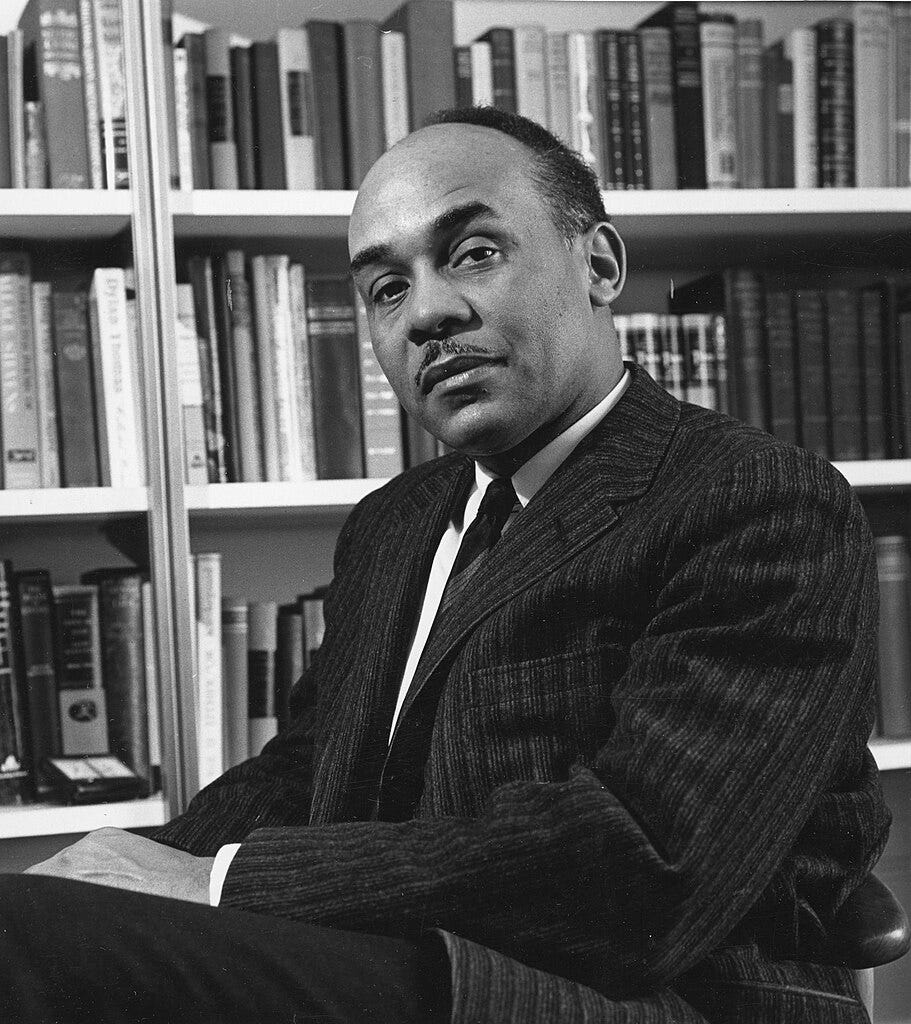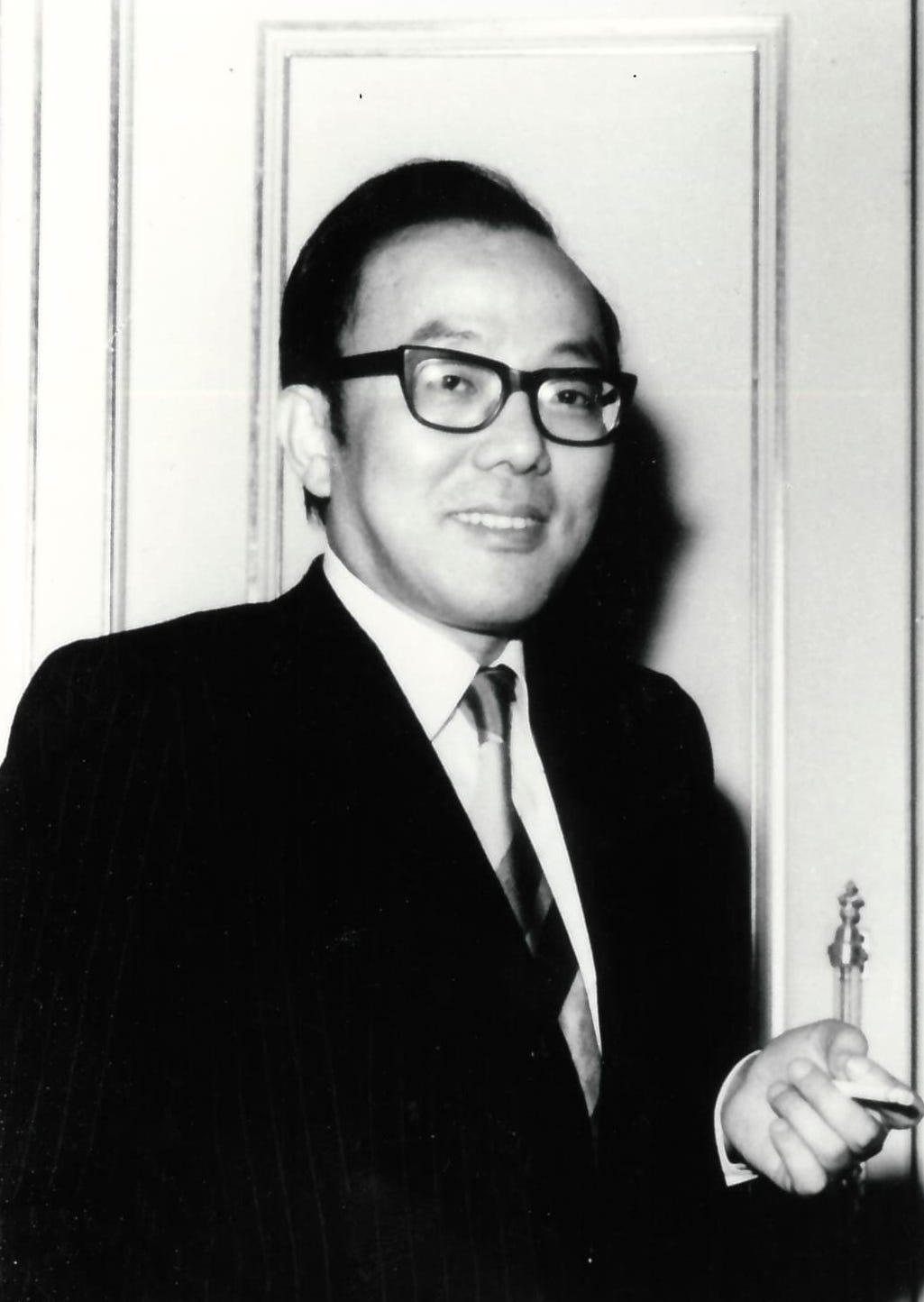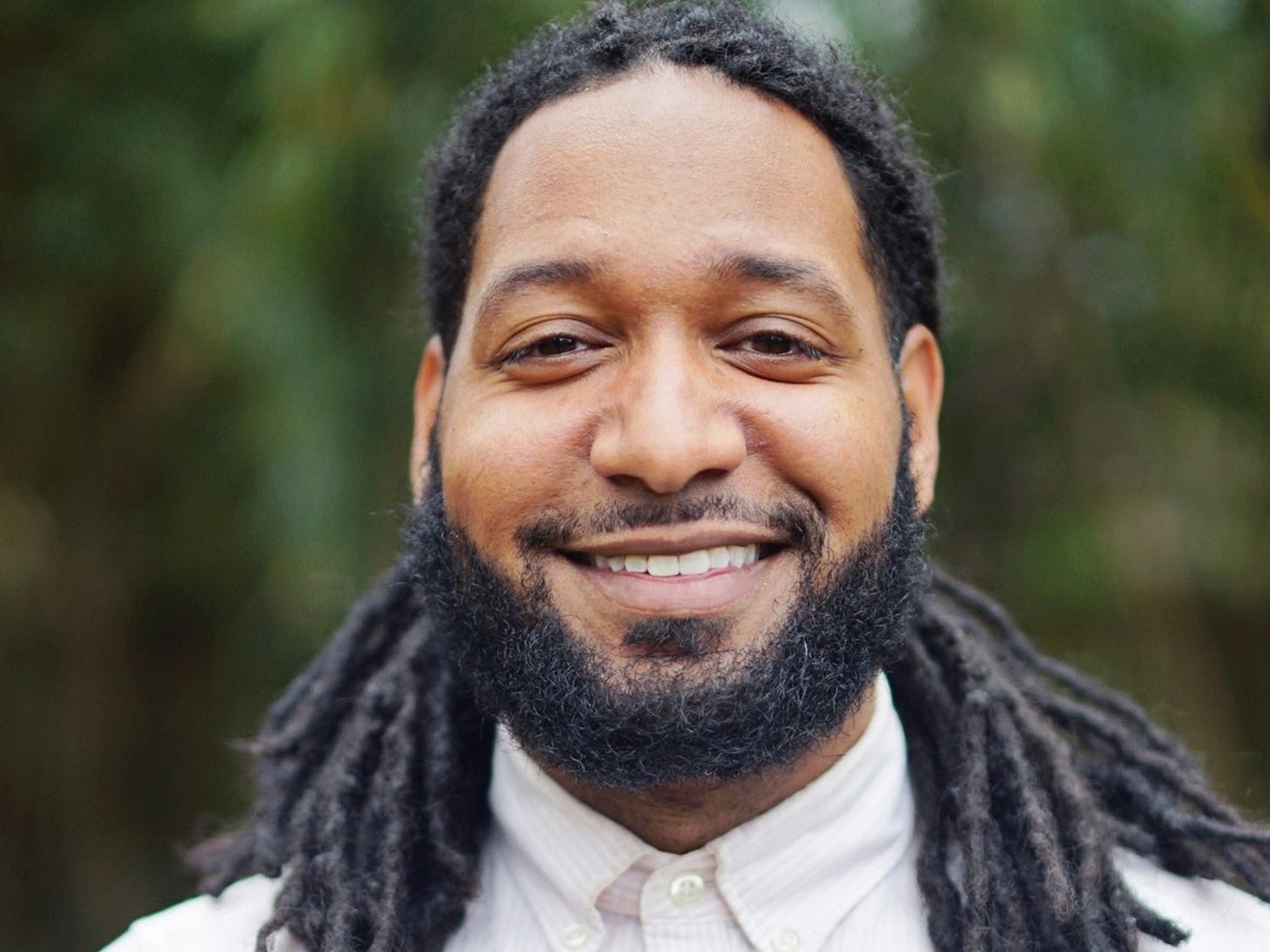‘A Chance to Heal and Develop Our Nation’s Soul’
Claude Atcho on What Black Literature Means for All Americans
Claude Atcho is an Anglican priest, a popular speaker, and a former adjunct English professor at Bunker Hill Community College in Boston, Massachusetts. Atcho’s critically acclaimed book, Reading Black Books, testifies to his deep appreciation for the confrontational and redemptive power of words; it won a Gold Book Award from the Midwest Book Review in 2023 and emerged as a finalist in Christianity Today’s annual book awards that same year.
Beyond his book, Atcho’s writing has appeared in The Witness, Think Christian, and Christ and Pop Culture, among other outlets. He also writes Good Things here on Substack reflecting on literature, faith, and culture with his signature insight. Known for his voracious reading, Atcho draws on a wide array of literature to inform his understanding of the world, blending serious scholarship with a commitment to contemporary questions.
In our conversation, we jump into themes such as the impact of black literature on American culture, the enduring relevance of classic works—including those some wish to cancel toady—and the powerful and subtle ways literature reflects our shared humanity.
How has black literature shaped broader American culture and identity?
I’ll try to at least scratch the surface on this one—it’s a question worthy of its own graduate course. At its most foundational level, black literature (which I take as African American literature) has given American culture and identity a chance to heal and develop our nation’s soul.
Slave narratives by Harriet Jacobs, Frederick Douglass, and others were prophetic calls for America and its citizens and structures to live up to what was said on paper, to quote Dr. King. Black literature has infused the issues of dignity, justice, and righteousness into our collective consciousness and has served as a non-ignorable, persistent call to action. Simultaneously artful and utilitarian, black literature has stewarded poems and prose to combat racism.
In another sense, black literature has shaped American culture in that our literature has displayed what’s been too often disputed: Black people are people—not magical, not lesser than, not better than, but truly, gloriously, and painfully human. This is what literature—if it’s worth the page at least it’s printed on—does: It showcases the universal dynamics of human life and contradiction through the particular flavors of its genre, culture, and authorial vantage point.
“Black literature (which I take as African American literature) has given American culture and identity a chance to heal and develop our nation’s soul.”
—Claude Atcho
What are some recurring themes in black literature you find particularly compelling or resonant? What does this literature say that we should be listening to?
Speaking of classic black texts, Henry Louis Gates Jr. once said “they reveal the human universal through the African American particular.” Black literature is universal in that its concerned with the business and beauty of being human: loving, worshiping, hurting, losing, winning, weeping, failing, and trying again. It’s particular in that this literature is born of people of African descent in a strange land to which their ancestors were stolen and placed, subjugated, enslaved, and violated in nearly every evil way imaginable.
Because of this, there are the usual human themes refracted through the diverse and particular angles of black experience: the search for meaning and dignity (Ralph Ellison’s Invisible Man), the question of suffering and history (Toni Morrison’s Beloved), and speculative, satirical explorations of race and the absurdity of racism in land centered upon such contradictions (George Schuyler’s Black No More).
I’m personally drawn to themes of recognition and dignity. To be seen and recognized by others is part of what we were made for. Novels that explore these themes—and how a racialized society collapses this possibility with great force and mercilessness—are fascinating to me. Cast in a negative light, I’m interested in themes of alienation. Black literature explores that (and many other things!) well, and we ought to listen first because good literature is a gift, and secondly, so we can imagine how we might continue to fashion together a better way of life together.
“I’m personally drawn to themes of recognition and dignity. To be seen and recognized by others is part of what we were made for.”
—Claude Atcho
I’d just like to hear you riff on this line from Ellison: “There must be possible a fiction which, leaving sociology and case histories to the scientists, can arrive at the truth about the human condition, here and now, with all the bright magic of the fairy tale.” Did Ellison achieve that kind of fiction? Who else?
I love that line. For Ellison, the genre of the novel was of great moral importance. It’s not a matter of mere entertainment but of revelation, an unveiling of the gritty nature of the human predicament. I think he did achieve that type of fiction in Invisible Man. And you can tell when you contrast it with something like Richard Wright’s Native Son. The latter is powerful because it sets out to be a work of protest and to give a searing message to white liberals. Invisible Man is resonant because it touches upon the nerves of the human predicament in a way that transcends sociology and, therefore, boomerangs upon all readers with a force that hits below the realm of sociology and strikes at the heart.
James Baldwin’s Go Tell It On the Mountain, and Nella Larsen’s Passing achieve this, too. As for contemporary writers, I think Jesmyn Ward’s Sing, Unburied, Sing is a worthy contemporary candidate for this sort of fiction. Though done in a rollicking and irreverent style, Paul Beatty’s White Boy Shuffle and The Sellout also come to mind.

Let’s say we’re coming at this as newbies. How do you approach discussing black literature with audiences who may be unfamiliar with its history and significance? Give us an on-ramp.
I’d probably start with what good literature is: an exploration of the human predicament in all its beauty and devastation. Historically, for black Americans, we can’t grasp this significance without telling the story of chattel slavery. Barred from literacy, black literature is a testament to the resilience of the human spirit. So the slave narratives are crucial, but it would be a mistake to only focus there.
Our literature ranges from the Afrofuturism of Octavia Butler’s Parable of the Sower to the Black power emphasis of Amiri Baraka’s poetry. Black literature is as diverse as black experience, but is rooted in the artful expression of our people’s triumphs and tragedies.
Can you discuss the influence of African American writers on contemporary literature? Who do you see as the key figures working in this tradition today?
I admit I don’t have the best read on this question since I mostly stay in my twentieth-century-black-literature lane. I mentioned Paul Beatty and Jesmyn Ward earlier. I think Beatty is important because he draws out the absurdity and contradictions of race in powerful, disturbing, and hilarious ways.
Colson Whitehead, Crystal Wilkinson, James McBride, and Kiese Laymon also come to mind as revered contemporary novelists, and rightly so. Wilkinson is especially important since she gives voice to rural black experiences in her work, and too often our reading of black literature is as monolithic as our view of black people. African American literature has always been diverse and expansive. These writers beautifully represent that same range—with Whitehead embodying that range singularly within his own corpus.

“She seems to be both a product of her times and a prophet to her time, and in large measure, mostly the latter—which is partly why her work endures.”
—Claude Atcho on Flannery O’Connor
You’re a fan of Flannery O’Connor’s work, as am I. In your reading, what is the most misunderstood aspect of her stories and novels?
I’m a fan but I don’t know if I have a robust enough grasp of her corpus to really answer this, but I’ll try. It seems to me the context of her writing explains her handling of race and her use of the grotesque to unsettle comfortable southern readers into a confrontation with truth. She seems to be both a product of her times and a prophet to her time, and in large measure, mostly the latter—which is partly why her work endures. If we recognize that it’s possible to be both a product of a context and a prophet to it, the contradictions of authors like O’Connor are less than surprising.
I sometimes find O’Connor’s handling of race off-putting and frankly uncomfortable. I wonder how you feel about those sorts of passages and how you reconcile them with her overall literary value.
I expect older writers to be offensive and mishandle a lot of things related to race, especially. In that sense, I can still appreciate the totality of their work. Relatedly, I think Richard Wright handles female characters atrociously. I always read his work with that in mind, so while this shapes how I perceive and respond to his novels, I’m never surprised. I expect authors to be flawed in substantial ways. Maybe that’s a cop-out or just an honest recognition of human weakness. Let the reader discern.
I think of criticisms of other classic, mid-twentieth-century white novelists who dealt with race: Harper Lee, Robert Penn Warren, and so on. Maybe, for instance, they were liberal-minded but didn’t go far enough for contemporary attitudes. How do you react to that? Can you describe a helpful way to engage with this part of American literature?
I remember a history teacher describing “presentism” to our class. This is when we judge in totality the people of the past by the standards of the present. The pull of presentism is persistent. However, the best way forward is to understand the past on its own terms and then evaluate it critically and charitably, the way we hope future generations treat us when they inevitably (and rightly) place us under their moral microscopes.
So, I always keep the allure of presentism in mind. I also think about what prophetic voices were speaking at their time. To Kill a Mockingbird was released the same year as The Autobiography of Malcolm X. That helps me situate conversations and fairly understand where an author stood concerning a particular moral issue within their context, in addition to our present vantage point.
“The best way forward is to understand the past on its own terms and then evaluate it critically and charitably, the way we hope future generations treat us when they inevitably (and rightly) place us under their moral microscopes.”
—Claude Atcho
What are your top-three novels, and why do they resonate with you?
I’ll go with The Samurai by Shusaku Endo, The Picture of Dorian Gray by Oscar Wilde, and Invisible Man by Ralph Ellison. The Samurai, a well-craft piece of historical fiction set in the 16th century, resonates with me for its honest exploration of ministerial ambition and pride in the character Father Velasco who seeks to be a great missionary. (I’m a priest, so this hits home in uncomfortable and important ways.)
The other perspective in the novel centers on how the native Japanese, embodied in the lowly Samurai named Rokuemon, encounter the scandal of the crucifixion and the person of Jesus. He is haunted and scandal by Christ as the “emaciated man.” Nearly time he sees a crucifix, Rokuemon ponders: “How can you revere such a miserable, wretched fellow? How can you worship someone so ugly and emaciated?” In an age where a muscular vision of Christianity often runs rampant, Endo’s portrait of Christ as the “emaciated man” is captivating—and offers a literary lesson in what it means to, as St. Paul says, know Christ crucified.

I first read Dorian Gray in high school, and it left a mark on me regarding how to choose carefully what constitutes the good life. It’s a novel I think of regularity, one that brings to life several of St. Augustine’s quotable prayers from Confessions, namely, “our hearts are restless until they rest in you, O Lord” and “What am I apart from you, Lord, but I guide to my own downfall.” Sometimes, getting what we want is the worst thing that can happen—unless our souls have been healed to desire what’s really good, true, and beautiful.
Invisible Man makes the list because its style and narrative capture, to me, the most authentic and jarring experience of invisibility I’ve read to date. I’m not sure I’ve read anything that made me feel so seen in my experience of being unseen.
“I’m not sure I’ve read anything that made me feel so seen in my experience of being unseen.”
—Claude Atcho on Ralph Ellison’s ‘Invisible Man’
How do you see the role of classic literature in today’s world? Do these works still have the same relevance and impact? Can they?
Novelist Italo Calvino wrote, “A classic is a book that has never finished saying what it has to say.” These texts still speak. The question is will we listen, and bring old voices to the table to converse with us?
The best literature of the past will always be relevant because they still speak and because each generation needs to retrieve those treasured voices again in a fresh way, and each generation has, by nature of time, more of the past to discover. With the rise of AI and the apparent decrease in reading among adults, classic literature will only become more important as less people read under the glut of online “content” and scrolling and so forth.
But goodness, truth, and beauty don’t expire, so there will also be a revivalist remnant who seek and savor these things. I think of the good work of scholars like Dr. Angel Adam Parham to retrieve classic literature within the black intellectual tradition as an encouraging harbinger.
Final question: You can invite any three authors for a lengthy meal. Neither time period nor language is an obstacle. Who do you pick, why, and how does the conversation go?
What a delightful and impossible question! I could say Frederick Douglass, James Baldwin, and MLK Jr. so I could eavesdrop of some of the most dynamic writers and orators in American history. It’d be a thrill to hear them talk about the American project and the lives of black people today. There would be weeping, shouting, laughing, and likely some prayer. I would say as little as possible and let the grown folks talk.
Were I in a different mood, I’d invite some of my favorite novelists: Ralph Ellison, Louise Erdrich, and Toni Morrison to hear their thoughts on novels and writing. And, part-way through the meal, I’d steel myself and muster up the courage to ask them to teach me how to write. I think Ellison would be off-put by the question since he came up through the school of hard knocks and was known to be a prickly dude at times (according to Arnold Rampersad’s wonderful biography). But I think Morrison and Erdrich would indulge and share some tricks of the trade.
Eventually, the conversation would turn to their own work, spinning off in delightful directions about the ever-present specter of history, a theme of both Morrison and Erdrich, at which point Ellison might re-engage with the conversation and, just before the night’s over and the table is cleared, he, out of pity, would offer me a crumb or two on the craft.
Thanks for reading. If you’re enjoying Miller’s Book Review 📚 please spread the love and share it with a friend!
And if you’re not a subscriber, take care of that now. You’ll be glad you did.
Before you go . . .






This was such a great interview!
So many good quotes on the role of literature in our formation. I've read my whole life for fun (fiction), education (non-fiction), or spiritual development (devotional/reference). Only recently have I been considering seriously that fiction could be more in conversation with my worldview than before
I appreciate that Atcho has offered theological reflections on the black novels he chose in his book. I think it would be interesting to see a Christian theological take on seminal Sci Fi/fantasy novels (more than Lewis and Tolkien), unless you know of one already?